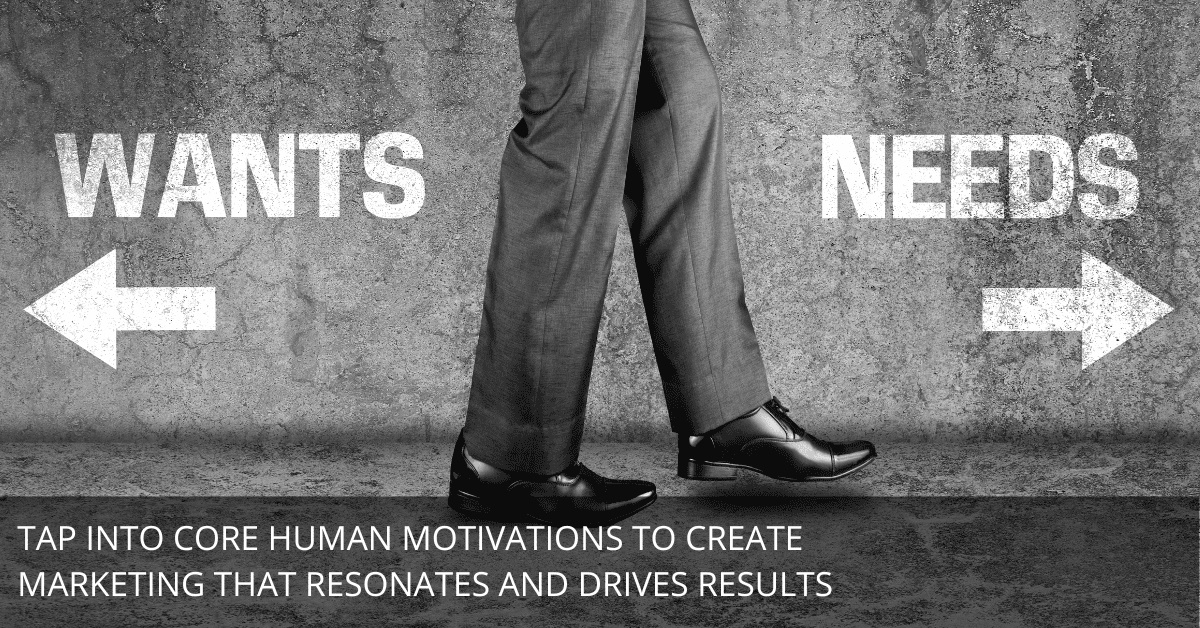
When marketing yourself as a musician, you’re not just selling songs or lessons; you're fulfilling specific needs for your audience. These needs fall into two camps: biological and psychological. Understanding the difference can make or break your marketing.
Biological needs are essentials. Think food, shelter, and, in this case, elements tied to survival instincts, such as health, well-being, or community belonging. For musicians, these might be services like healing music, music for relaxation, or music therapy workshops. People will instinctively seek out these needs, often without hesitation.
On the other hand, psychological needs are rooted in desires—status, self-expression, or the urge to stand out. This is where luxury, exclusivity, and the “cool” factor play in. Selling custom music for a wedding? That’s a psychological appeal. Offering VIP behind-the-scenes access? Again, psychological. People can live without it, but if you market it right, they won’t want to.
Determine if You’re Serving Needs or Wants
To make sure you’re aligning with the right audience, you need to get clear on whether your offering appeals to needs (biological) or wants (psychological). For example, if you’re selling personalized mindfulness tracks, your appeal is rooted in mental health—a biological need. But if you're offering exclusive access to a private concert, you're selling status and exclusivity—a psychological want.
Here's how to get started:
- Define Your Product: Describe what you’re offering in detail. Is it music for relaxation or an exclusive ticket? This simple exercise will clarify your positioning.
- Think About the Audience's Motivations: If they’re dealing with stress and anxiety, they're motivated by a need. If they're looking for something unique to show off, that’s a want.
- Test Both Approaches: When in doubt, test two ads—one focused on the essential and one on the exclusive—track which performs better and adjust your strategy.
Marketing Biological Needs: Go for Simplicity and Clarity
Biological needs call for straightforward, to-the-point marketing. Avoid gimmicks and focus on the value your music or service provides. Imagine you’re marketing a music therapy session. Instead of using abstract language, go straight to the heart of what it delivers: relief from stress, peace of mind, and a clear path to better mental health.
Here’s what to do:
- Use Direct Language: Say, “Reduce stress in 30 minutes with sound therapy” instead of “Experience a journey of sound.”
- Highlight Tangible Benefits: Focus on clear, practical outcomes, such as improved focus, reduced anxiety, or better sleep.
- Make It Feel Essential: Connect it to your audience's urgent needs. If you’re offering music lessons, frame them as a proven way to enhance well-being and mental agility, especially during stressful times.
Marketing Psychological Needs: Create Desire and Exclusivity
Psychological needs are more about emotion and status. If you’re promoting an intimate concert or a custom composition, you appeal to a desire for exclusivity, luxury, and personal expression. This requires a different tone that emphasizes scarcity, uniqueness, and allure. Make your audience feel they’re getting something rare and worth boasting about.
Here are three steps to appeal to psychological needs:
- Use Alluring Language: Say, “Only 20 seats available” or “Get a song written just for you.” Tap into their fear of missing out.
- Highlight Unique Aspects: Showcase what makes your offer special, whether it’s a unique style, your reputation, or a once-in-a-lifetime opportunity.
- Focus on Aspirational Benefits: Emphasize how this offering fulfills their self-image, like, “Become the kind of person who has a custom song for every celebration.”
Blending Both Needs: The Perfect Formula for Musicians
Often, your audience’s motivations blend needs and wants. For example, they may seek music for relaxation (a biological need) or something personalized and exclusive (a psychological want). Combining these two approaches can add immense power to your messaging.
For example, if you offer a relaxation playlist with custom tracks, frame it as “Personalized to Your Unique Stress Triggers,” combining the functional with the personal. This combination makes it both a necessary tool for mental health and a luxury item.
To blend needs and wants:
- Lead with the Need: Start by addressing the essential benefit—stress relief, for example.
- Enhance with Exclusivity: Once you’ve established value, add exclusivity to the message, like “Tailored specifically for your wellness journey.”
- Encourage Ownership: Use phrases that let the audience see the offering as a “must-have” for their personal collection, balancing the essential with the aspirational.
Practical Examples for The Encore Client System
Let’s look at a few scenarios specific to your musician business. If you’re offering online music lessons, you primarily address a biological need for skill-building and mental engagement. Position this as a pathway to mental health—“Boost Your Brain Health with Weekly Piano Lessons.” However, if you’re creating a VIP music production experience, your language should emphasize exclusivity—“Create Your Own Track in a Private Studio Session.”
Remember:
- When targeting biological needs, use grounding language focused on health, simplicity, and essential benefits.
- For psychological needs, bring in allure, social proof, and the idea of scarcity or exclusivity.
The Encore Client System: A Tailored Approach
The Encore Client System, tailored for musician entrepreneurs, can help you effortlessly switch between biological and psychological appeals. If you’re a composer offering services, understanding whether your audience is seeking a necessity or a luxury can guide your messaging.
For example, when selling music composition services, if your client is looking for background music for meditation (biological), focus on the benefits of calmness and mental clarity. But if they’re looking for a custom soundtrack to add flair to an event, lean into the exclusivity of your service and the unique style only you can provide.
In every case, the principles of The Encore Client System will help you adapt and align your message to maximize its resonance with your audience.
Final Thoughts: Aligning Needs and Marketing
Aligning your marketing language with your audience’s biological or psychological needs is a powerful way to create connections and drive action. Whether you’re tapping into basic needs or high-end desires, clarity in messaging and an understanding of your audience’s core motivations will guide your success.
Ready to take this approach? Identify the primary motivator behind your audience's interest, refine your messaging accordingly, and watch as you build stronger, more profitable connections through The Encore Client System.

